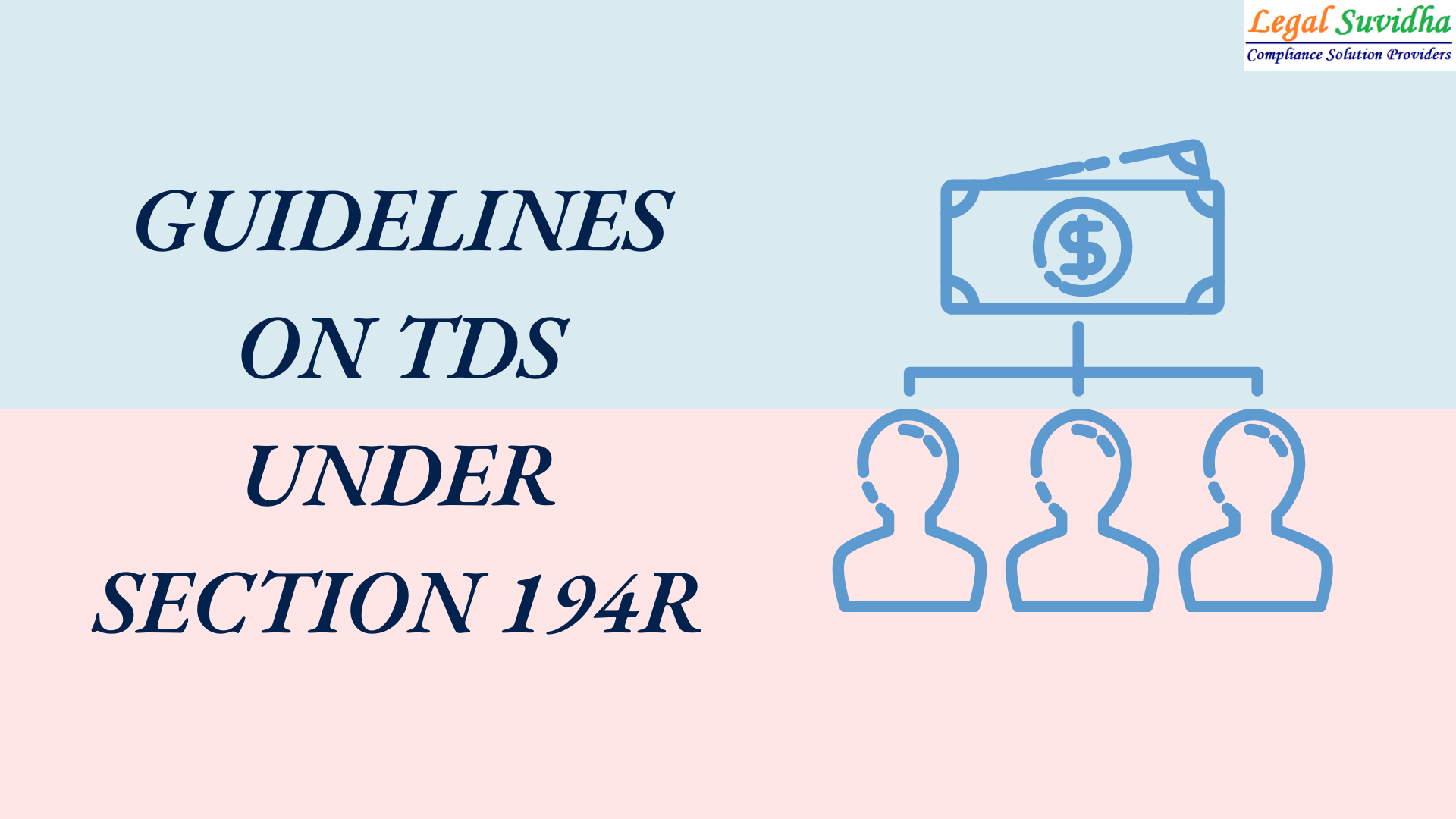CBDT ISSUES NEW GUIDELINES ON TDS UNDER SECTION 194R
Union Budget 2022, a new TDS section 194R, has been proposed in the Finance Bill 2022, w.e.f. 01.07.2022.
This new section 194R requires deduction of tax at source @ 10%, by any person, providing any benefit or perquisite, exceeding Rs. 20,000 in value, in a year, to a resident, arising from the business or profession of such resident and such benefit or perquisite is in the nature of income falling under section 28(iv) of the Income tax Act.
The benefit or perquisite referred to in this new section 194R is not the perquisite u/s 17(2), under the head salary income, paid or payable by the employer to employees, as for that perquisite u/s 17(2), another TDS section 192 is already there.
The benefits or perquisites proposed to be covered by this new section 194R are those perks, benefits, amenities, or facilities, probably in kind, or in a combination of cash and kind, which a resident person enjoys, pursuant to, or in exercise of his business or profession, in lieu of the regular consideration payable to him, in monetary terms, in exercise of such business or profession. Such benefits or perquisites are taxable as business receipts u/s 28(iv) of the Income Tax Act
Sec 28 : The following income shall be chargeable to income-tax under the head “Profits and gains of business or profession”,
(iv): the value of any benefit or perquisite, whether convertible into money or not, arising from business or the exercise of a profession.
Purpose for Introducing of Sec 194R:
It was observed by department that many companies claimed expenses for business promotions by offering various gifts/ perks/ benefits to its dealers (on fulfillments of conditions of under agreement or as per prevalent norms/ tradition practice followed by over the years by business entity) under section 37 of Income Tax Act 1961, however majority of dealer did not declared the said gifts/ perks/ benefits under business income as required by sec 28 (iv) of Income Tax Act 1961. So to bring such gifts/ perks/ benefits received due to business connections by resident dealers TDS U/s 194R is introduced to track the undeclared income.
CBDT Issues Guidelines on TDS applicability on Non-salary prequisites:
The Central Board of Direct Taxes (CBDT) issued guidelines seeking to address likely issues emanating from application of the newly introduced section 194R of the Income Tax Act for withholding 10% tax (TDS) on benefits or perquisites from non-salary sources.
The new provision part of the Finance Act 2022 will become effective from July 1.
According to the guidelines, it is not necessary for the payer/deductor to check the taxability of the sum in the hands of the payee before deducting TDS by clearly distinguishing the principles governing TDS under Section 195 from the TDS under Section 194R.
It is made clear that the benefit or perquisite covered under Section 194R can be either in cash or in kind or partly in cash and partly in kind. The nature of asset given as benefit or perquisite is not relevant and even capital assets given as benefit or perquisite are covered within the scope of Section 194R. CBDT categorically uses the phrase ‘of whatever nature’ on benefit or perquisite for fastening TDS liability on the payer.
However, CBDT has provided a breather on sales discount, cash discount and rebates allowed to customer by excluding them from the purview of Section 194R as their inclusion would put the seller into difficulties. Section 194R will apply to seller giving incentives, other than discount or rebate, which are in cash or kind e.g., car, TV, computers, gold coin, mobile phone, sponsored trip, free ticket, medicine samples to medical practitioners.
“The guidelines have been issued in time considering the section is effective from 1st July and seeks to provide clarity on multiple fronts. Certain aspects, particularly applicability of withholding tax on reimbursement of OPE’s, benefits provided in cases of recipient not engaged in business or profession etc.







